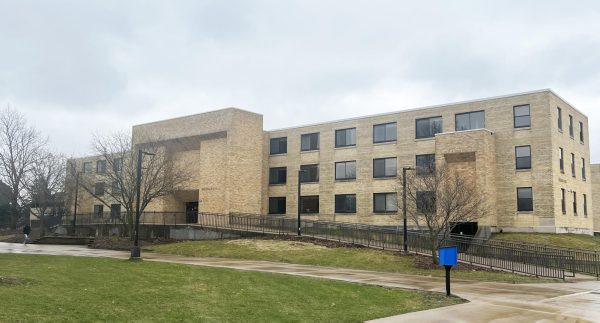Still no decision on office hours, third proposal added
After weeks of debate, three initiatives are sitting on the table.
A new proposal for office hours was brought to the Faculty Senate meeting on Nov. 25. The proposal, collaborated by mathematics professor Benjamin V.C. Collins and director of the School of Agriculture Michael Compton, gave an overall definition of office hours.
During the meeting, T.A. Sandberg, philosophy professor, brought forward a motion adding to the new proposal. His amendment declared how many office hours a part-time instructor must have. The amendment declared every hour taught is equivalent to one hour in their office or other obligations involving student engagement.
The proposal encourages instructors to continue using the 10 hours in their offices, but it allows them to expand these hours beyond the office. The instructors may use these hours to include undergraduate research, online office hours or other activities allowing for student engagement.
The proposal also allows for instructors to make their own judgment on when and how long they should have these office hours, although each department and school can decide on instructors’ mandatory hours.
“The proposal as written actually allows for control at the department level,” Collins said.
Each school would be able to determine how many hours instructors must be in their offices for, but some departments already have a policy in place.
“I know BILSA has a policy in place that’s enforced every semester indicating that you are to be on this campus full time if you’re a full time instructor,” Compton said.
“It seems to cover the needs of the students in math courses without unnecessarily restricting the instructors in agriculture or criminal justice or some other discipline,” Collins said.
Amanda Tucker, English and humanities professor, has concerns with this new proposal.
“I’m really not in favor of how much students spend to be here and the other kind of obligations they have while decreasing the amount of contact time we [professors] have with them,” Tucker said.
The proposal defines accessibility and the different ways students can contact their instructors outside of the office and classroom.
“I think the reason that most students were in favor of this revised policy is because of accessibility,” Joseph Sigwarth, Student Senate President and junior business administration major, said. “It defines accessibility by including all of these different areas [like undergraduate research and student organizations].”
“I hope you would see that a benefit out of this is flexibility,” Compton said.
The revised proposal will be voted on during the next Faculty Senate meeting at 4 p.m. on Tuesday, Dec. 9.













